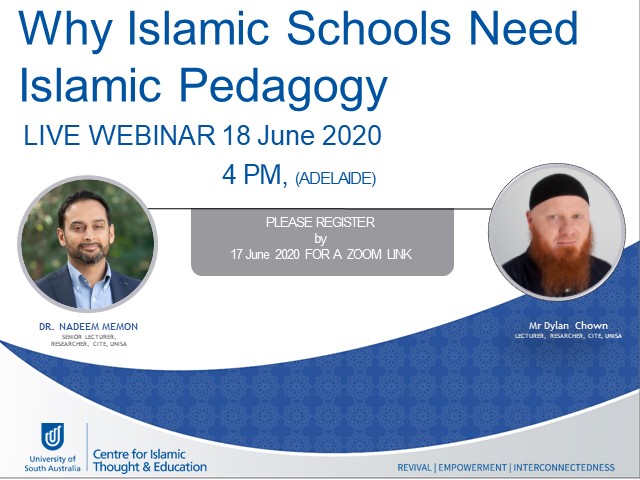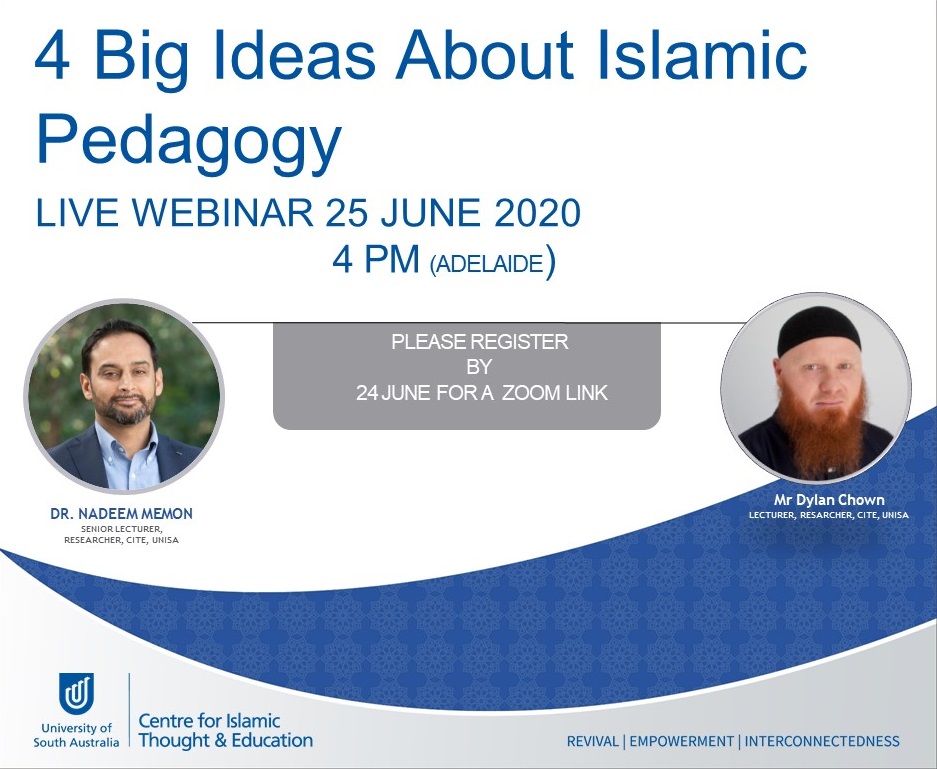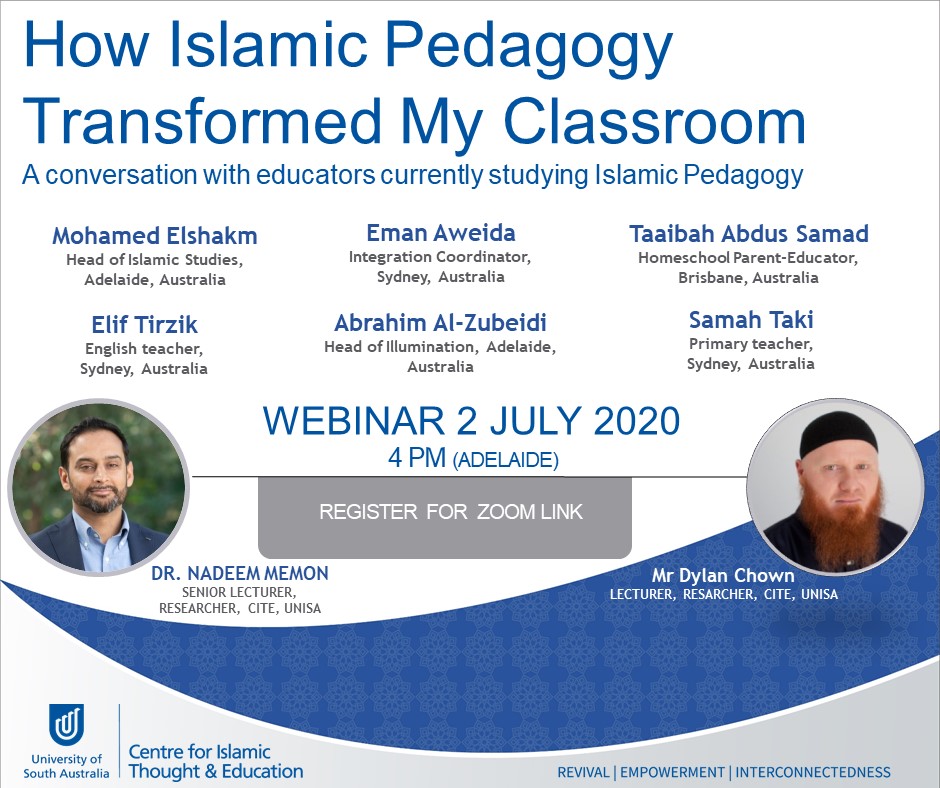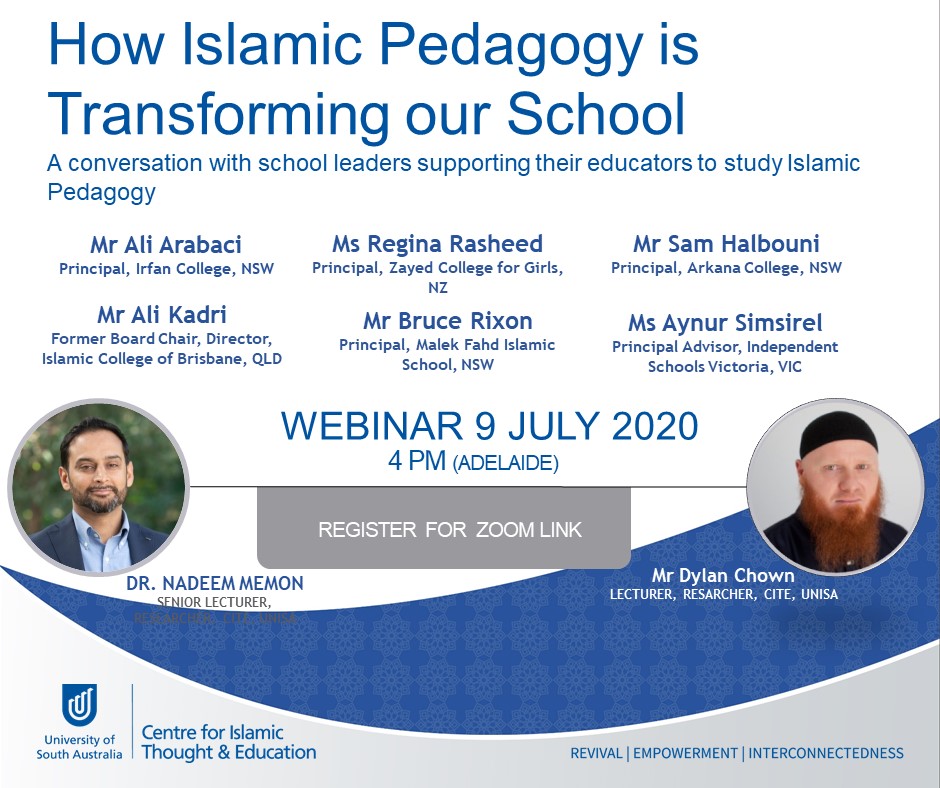Islamic Pedagogy refers to the educational values, concepts, and perspectives rooted in the Islamic tradition that inspire and inform renewed thinking within Islamic schools and educational settings.
Like other faith and spiritually based pedagogies, Islamic pedagogy challenges the increased technicising of teachers work and insists on centring educational values of holistic (mind-body-soul) education – where the education of the soul is paramount.
Pedagogy in this sense is a human science, a philosophy of education that addresses the big why questions around the purpose of education and schooling thereby informing the way we teach (i.e. instruction) - but isn’t simply the art of instruction. Pedagogy here refers to the education values that inform instructional practice. In other words, the way we teach is not arbitrary. We each teach in ways that reflect our educational values. And for educators in Islamic schools, the assumption is that educators (Muslim or not) reflect educational values of Islam.
To delve deeper into Islamic Pedagogy, consider the following resources (please click the picture to take you to the YouTube recordings):
 |
 |
 |
 |
Article: Islamic Pedagogy for Islamic Schools
Nadeem A.Memon
Summary
Since the early 1980s, the number of Islamic schools in Western contexts such as the United States, Canada, Australia, and the United Kingdom has increased steadily. What began in the 1980s as a handful of schools aspiring to preserve the religious identities of Muslim learners has grown into substantial schooling segments within the private and/or independent schooling sectors in their respective contexts. These schools are full-time day schools that adhere to national or state educational policy and practice while aspiring to foster religiosity. Empirical research on Western Islamic schools, however, commonly critiques these schools for superficially appending Islam onto an existing public school model. Aside from Islamic dress codes, prayers, and religious studies classes, Islamic schools commonly adopt wholesale standardized curricula, testing regimes, methods of teaching, school policies, and measures of success that reflect global education trends with the hope of attaining internal community legitimacy and external public validation. An overemphasis on academic competitiveness has cultivated a culture of performativity at the expense of a distinct educational model and approach. Despite a rich heritage of educational thought in the Islamic tradition, a significant disconnect between Islamic educational theory and Islamic schooling practice remains. As schools continue to strive toward distinction, bridging this theory–practice divide is critical. Moving toward Islamic pedagogy, not in the sense of a method of instruction but pedagogy as a human science that addresses the big questions about what makes education that is “Islamic” distinct, will ground Islamic schools in a nuanced educational theory they can call their own. Read the full article: Islamic Pedagogy for Islamic Schools (2021)




